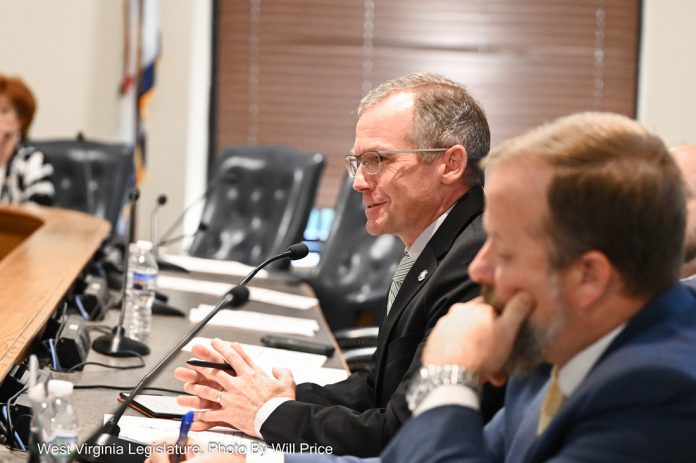West Virginia lawmakers discussed the state’s vaccine requirements and exemptions with medical experts during Tuesday’s meeting of the West Virginia Legislature’s Joint Committee on Children and Families.
West Virginia is currently one of five states that allows only medical exemptions — not religious or philosophical — for mandated school vaccines.
Shannon Kolman, senior policy specialist in the National Conference of State Legislatures’ Health Program, told lawmakers that vaccinations are required when a child is enrolled in a public school. In West Virginia, a parent or guardian is able to apply for a medical exemption through a physician.
State Epidemiologist Shannon McBee told members of the committee that the state Bureau of Public Health has received 198 requests for medical vaccine requirement exemptions over the past five years. The requests are sent by a child’s physician. McBee said about 75 percent of those exemptions have been approved.
McBee also noted that the state has not offered “reciprocity” to residents from other states who have gotten exemptions for vaccination mandates and then moved to West Virginia.
“West Virginia is considered to have an exemplary immunization model with no recorded outbreaks of measles,” McBee said. “The most common requests that are approved by the Bureau for Public Health are for children who have immunosuppressive medications or have a documented severe reaction to a vaccine or are the recipient of an organ transplant.”
Senator Rollan Roberts (R-Raleigh, 09) objected to the lack of reciprocity.
“So we are telling people from other states don’t come into West Virginia?” Roberts said.
Dr. Joseph Evans, former chief medical officer of Marshall Health and former chair of the Department of Pediatrics at Marshall University, told members that the World Health Organization has identified vaccine hesitancy as one of the top 10 threats to global health.
Evans echoed McBee’s statements, pointing to the state’s strict vaccine laws when touting West Virginia’s high vaccination rate in school-age children, and for the lack of outbreaks in vaccine-preventable illnesses. He noted that the state has not had a measles case for instance, since 2009. He also mentioned that nationally, the school vaccination rate has declined among school children since COVID, but West Virginia’s has been higher.
“Thanks to our vaccine laws, our state is among the best and safest from vaccine-preventable illness,” Evans said. “We are a model for other states trying to decrease vaccine-preventable diseases. We need to keep our vaccine laws. If it’s not broke, don’t fix it.”
Several lawmakers disagreed with that sentiment throughout the meeting, questioning the efficacy of the vaccine as well as advocating for freedom of choice with regard to every vaccine.
Committee Chairman Mark Hunt (R-Kanawha, 08) ended the meeting by announcing that this would not be the last discussion the Legislature has regarding the state’s vaccine laws.

